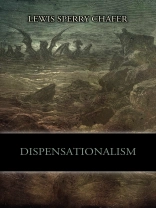A controversy among orthodox theologians over dispensational distinctions is not new. Jonathan Edwards wrote: “There is, perhaps, no part of divinity attended with so much intricacy, and wherein orthodox divines so much differ as the stating of the precise agreement and difference between the two dispensations of Moses and Christ”. But this discussion, as is often the case, has suffered much for want of definition.
The word dispensation is twofold in its import: It may refer to a dispensing or an administration or to an abrogation of standards or existing laws—such are the dispensations practiced by the Church of Rome. It is obvious that the controversy among theologians is concerned only with the former. The word dispensation is Latin in its origin, being derived from dispensatio—economical management or superintendence—and has its equivalent in the Greek oikonomia, meaning, in this specific usage, ‘stewardship’ or ‘economy’ as to special features of divine government in the various ages. To quote the Century Dictionary bearing on the theological import of the word: “(a) The method or scheme by which God has at different times developed his purpose, and revealed himself to man; or the body of privileges bestowed, and duties and responsibilities enjoined, in connection with that scheme or method of revelation: as the Old or Jewish dispensation; the New Gospel dispensation. (b) A period marked by a particular development of the divine purpose and revelation: as the patriarchal dispensation (lasting from Adam to Moses); the Mosaic dispensation (from Moses to Christ); the Christian dispensation.” The Century Dictionary also quotes one pertinent sentence from Bibliotheca Sacra of sixty-two years ago: “The limits of certain dispensational periods were revealed in Scripture” . In the light of this material, the definition advanced by the late Dr. C. I. Scofield, namely, “A dispensation is a period of time during which man is tested in respect of obedience to some specific revelation of the will of God, ” is hardly entitled to the criticism which is aimed against it.












